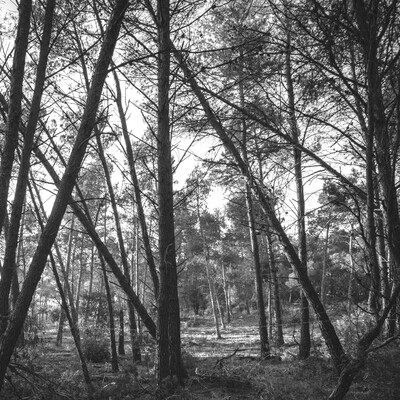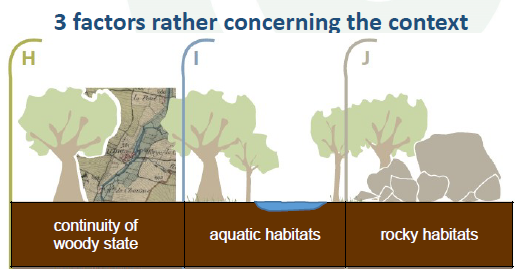
Fieldwork: index of biodiversity potential
Forests are complex living systems that provide habitat for a wide variety of plant and animal species. This complexity is often detrimental to the consideration of forest biodiversity in day-to-day management. Therefore, researchers and practitioners from France have developed a simple and quick method called the "Index of Biodiversity Potential (IBP)" for assessing biodiversity in forests. The method is based on ten key biodiversity characteristics and aims to improve them. The following factors are considered and given a score of 0, 2 or 5:
A: Native tree species: number of native tree species
B: Vertical structure: number of vegetation layers visible
C: Large standing deadwood: number of standing dead wood with a height ≥ 1 m and diameter ≥ 27.5 cm
D: Large downed deadwood: number of lying dead wood with a length ≥ 1 m and a diameter ≥ 27.5 cm
E: Very large living trees: number of large trees with a diameter ≥ 57.5 cm
F: Living microhabitat-bearing trees: number of microhabitats like woodpecker lodges, soil cavities, exposed sapwood, dead wood in the crown, cankers, etc.
G: Openness: area of open environments with characteristic flowering vegetation (plants with flowers different from those under the canopy or identical, but with more abundant flowers)
H: Continuity of woody state: assessment of the connectivity of the forest
I: Aquatic habitats: number of natural or artificial types of aquatic habitats like spring, channel, river, lake, pond, swamp, etc.
J: Rocky habitats: number of rocky habitats like cliff, slab, stable, boulder, rocks, pebble bank, etc.
The team collaborates with a student of forest dynamics from the University of Barcelona and expects first results within the next months.
References:
P. Gonin, L. Larrieu & M. Deconchat (2018). Index of Biodiversity Potential (IBP): for estimating the potential of forest stands for biodiversity. GoProFOR LIFE. Florence, Italie.


